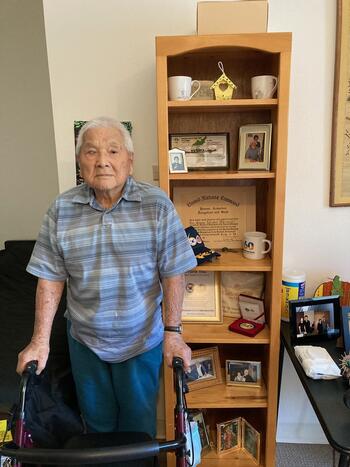Reimagining Public Health
On Saturday, May 22, 2021, Stanford Global Studies (SGS) hosted the , which featured presentations by 11 2020ŌĆō21 EPIC Fellows. 91│į╣Ž, along with the Center for Spatial and Textual Analysis, is SGSŌĆÖs EPIC Partner. The following reflection is a guest post by EPIC Fellow Maiya Evans, assistant professor at Skyline College, who gave a presentation on ŌĆ£Reimagining Public Health.ŌĆØ
ŌĆ£IŌĆÖm telling you, professor. IŌĆÖm telling you, somethingŌĆÖs going on.ŌĆØ I listened intently with curiosity as one of my Skyline College students made her case. Another chimed in, ŌĆ£TheyŌĆÖre saying itŌĆÖs killing old people and that the doctor who discovered it died, too.ŌĆØ Sensing the palpable anxiety in their shares, I decided to pivot the following weekŌĆÖs lesson on epidemiology to focus on what was then called the novel coronavirus and its spread in China.
At the time these conversations took place, we were in late January of 2020, so the coronavirus was still novel to the United States, indeed. Every class session thereafter, we watched the Johns Hopkins Center for Systems Science and EngineeringŌĆÖs global map of new and existing COVID-19 cases grow. As the numbers increased from hundreds to thousands, and subsequently thousands to millions over the course of mere weeks, it became clear that looking at every countryŌĆÖs approach to controlling the spread of COVID-19 was essential. Without knowing it, my students and I were planting the seeds of the Reimagining Public Health (RPH) Roundtable series.
When I made the decision to apply to the Stanford EPIC Fellowship, which aims at internationalizing the community college curriculum, I knew that I wanted to work on a project that expanded the borders of public health in the United States. The purpose of the RPH Roundtable series was to invite students to reshape and rethink our approaches to health and health care in the United States by borrowing from public health methodologies from other nations. This pilot for the RPH Roundtable series was implemented in the Spring of 2021 in my Introduction to Public Health course at Skyline College in San Bruno, California.
My hope for the RPH Roundtable series was simple: to challenge students to gain an understanding of how public health systems function in the United States and abroad. Students were invited to observe the following in other nations: (1) public health approaches to controlling the spread of disease, (2) the connection between economics and health resources, and (3) the influence of health policy on public health interventions. The students gathered virtually throughout the semester to engage in podcast-style conversations around three relevant public health topics that impact the United States: communicable and non-communicable disease, mental health, and substance use.
Students had powerful insights about current approaches to public health issues in the United States and abroad. For example, one group discussed the societal impact of unfair and punitive drug policy in the United States vs. gentler harm reductionist drug policy in the Netherlands. Students also brainstormed innovative community health solutions, such as implementing holistic, non-Western approaches to addressing mental health issues (as is common in China), or creating mental health programs within the workplace, which is done in some parts of Canada.
All in all, I was extremely satisfied with the outcome of the RPH Roundtable series, and I am incredibly proud of the students for challenging themselves to think critically about making positive, meaningful change in public health. Though there were many lessons learned with regards to the challenges of doing a project of this caliber in the virtual space, I thought the students did an incredible job of having deep, meaningful, and well-informed discussions about the potential of a brighter future in our public health system.
Read More
Guest author Maiya Evans reflects on her EPIC project, which challenges students to reimagine public health.

 FSI researchers consider international development from a variety of angles. They analyze ideas such as how public action and good governance are cornerstones of economic prosperity in Mexico and how investments in high school education will improve ChinaŌĆÖs economy.
FSI researchers consider international development from a variety of angles. They analyze ideas such as how public action and good governance are cornerstones of economic prosperity in Mexico and how investments in high school education will improve ChinaŌĆÖs economy.




















 Brandon ChoŌĆÖs great-grandparents, Tai Young Whang and Bong Soon Whang, Seoul; photo courtesy Brandon Cho
Brandon ChoŌĆÖs great-grandparents, Tai Young Whang and Bong Soon Whang, Seoul; photo courtesy Brandon Cho









